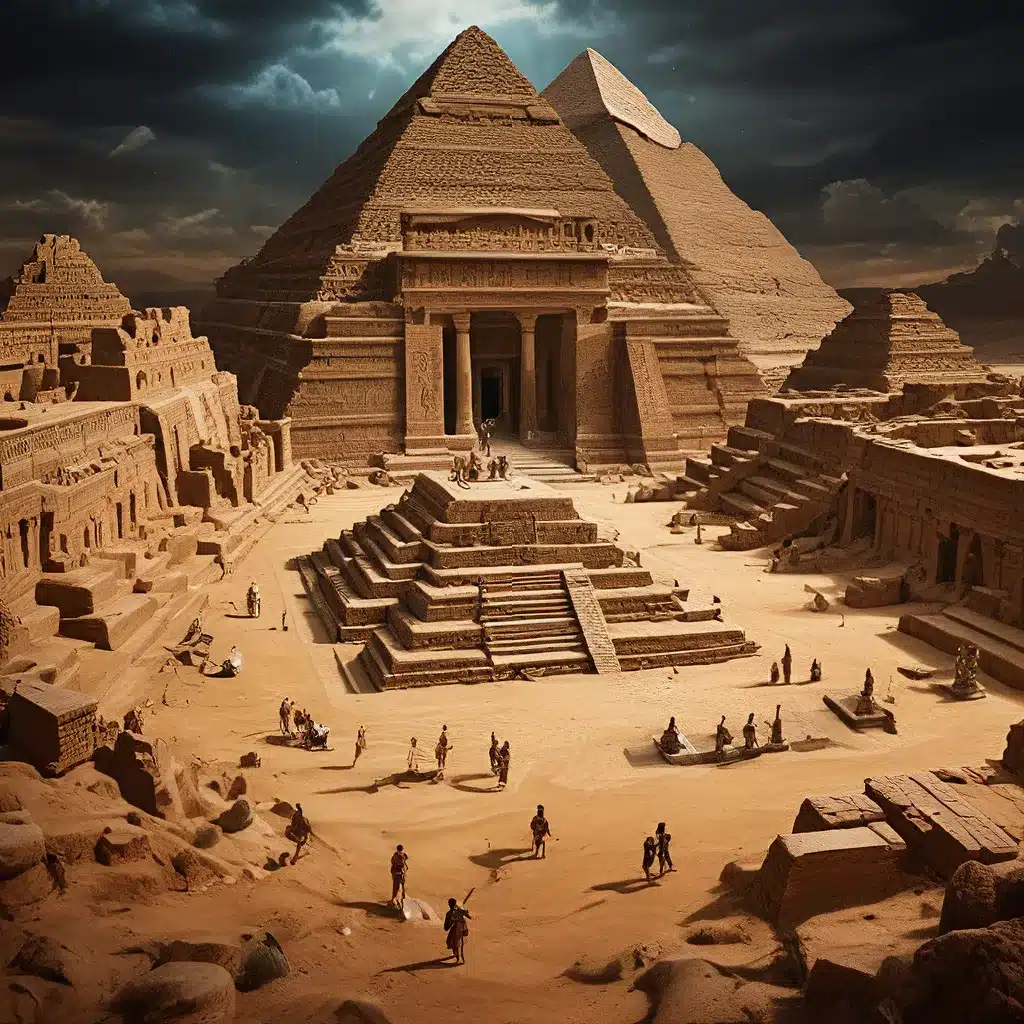
Unraveling the Mysteries of Lost Worlds
The allure of ancient civilizations has long captivated the human imagination, drawing us into the depths of history and igniting our curiosity about the secrets they left behind. From the magnificent pyramids of Egypt to the enigmatic Nazca Lines in Peru, these forgotten societies have left an indelible mark on the world, challenging our understanding of the past and inspiring us to uncover their hidden legacies.
Archaeologists, the modern-day explorers of these lost worlds, have dedicated their lives to piecing together the fragments of history, unearthing remnants of long-vanished cultures and shedding light on the lives and achievements of our ancestors. Through their meticulous excavations and analyses, they have resurrected the stories of civilizations that once thrived, but now exist only in the annals of time.
One such example is the Aztec Empire, whose spiritual center, the Templo Mayor, was excavated by the renowned archaeologist Eduardo Matos Moctezuma. His groundbreaking work unveiled major aspects of Aztec religion, life, and society, providing a window into this powerful and complex civilization. As Matos Moctezuma stated, “We’ve just scratched the surface of Tenochtitlan, the capital, but we still need to know how it was organized, the social hierarchies, and the way it functioned.“
Deciphering Ancient Texts and Scripts
Language has always been a key to unlocking the secrets of the past, and the study of ancient scripts has been a crucial aspect of archaeological research. From the enigmatic Egyptian hieroglyphs to the mysterious Mayan glyphs, these cryptic writing systems have posed formidable challenges to scholars and linguists, who have worked tirelessly to decipher their meanings.
The discovery of the Rosetta Stone was a watershed moment in the study of ancient languages, providing a bridge between ancient Egyptian and ancient Greek, and allowing researchers to crack the code that had long eluded them. Similarly, the decipherment of cuneiform script from Mesopotamia and the Sanskrit of ancient India have opened up new realms of understanding, revealing the rich cultural, literary, and political history of these ancient civilizations.
“Language is the key that unlocks the doors to a civilization’s culture and history,” explains one scholar. “The study of ancient languages not only helps us understand their daily lives but also sheds light on their beliefs, literature, and politics.”
Unveiling the Ingenuity of Ancient Builders
One of the most awe-inspiring aspects of ancient civilizations is their remarkable engineering prowess, as evidenced by the construction of monumental structures that continue to baffle modern-day architects and engineers. From the towering pyramids of Giza to the intricate stone carvings of Machu Picchu, these ancient builders demonstrated a level of technological sophistication that challenges our assumptions about the past.
“How did they stack those massive stones so precisely? How did they transport heavy materials across long distances without cranes or trucks?” These are the questions that continue to captivate researchers, who have dedicated countless hours to unraveling the secrets behind these ancient building techniques.
But the ingenuity of ancient civilizations extends far beyond their architectural marvels. Numerous discoveries, such as the Antikythera mechanism, a device from ancient Greece that is believed to be one of the earliest known analog computers, and the battery-like devices found in Mesopotamia, suggest that these societies were far more technologically advanced than we often give them credit for.
Unraveling the Mysteries of Lost Cities
The allure of lost cities has long captured the human imagination, with tales of mythical places like Atlantis and the legendary El Dorado sparking generations of adventurous expeditions and archaeological quests. From the underwater ruins of Dwarka off the coast of India to the remains of the Indus Valley Civilization, these vanished worlds serve as a reminder of the impermanence of human achievement and the constant evolution of our shared history.
“Imagine stumbling upon a hidden city concealed beneath layers of dirt and time, its secrets waiting to be unveiled,” says one historian. “That’s exactly what happened when archaeologists discovered Pompeii, the ancient Roman city buried beneath the ashes of Mount Vesuvius.“
The search for lost civilizations is not just about uncovering ancient ruins; it’s about piecing together the puzzle of our shared human history. Each new discovery brings us closer to understanding the complexities of the past and offers glimpses into the lives of those who came before us.
Embracing the Unsolved Mysteries
Even as we uncover the secrets of ancient civilizations through meticulous research and archaeological exploration, some puzzles remain stubbornly unsolved, challenging our assumptions and sparking new avenues of inquiry. From the mysterious disappearance of the Mayan civilization to the enigmatic purpose of Stonehenge, these unsolved mysteries keep us up at night, pondering the secrets they hold.
“Just when you think you’ve got history figured out, ancient civilizations throw yet another curveball,” says a leading archaeologist. “But isn’t that part of the charm of these lost worlds? The fact that despite our best efforts, there are still gaps in our knowledge, mysteries waiting to be unraveled.“
By embracing the unsolved mysteries of ancient civilizations, we acknowledge the richness and complexity of human history, and the ongoing pursuit of knowledge that keeps it alive and constantly evolving. As we continue to unearth the secrets of the past, we gain a deeper appreciation for the ingenuity, resilience, and cultural diversity of our ancestors, and the enduring legacy they have left for us to explore and cherish.
The Lost Kingdoms is at the forefront of this journey, dedicated to uncovering the stories of ancient civilizations and sharing them with the world. Join us as we continue to delve into the realms of forgotten cultures, decipher their cryptic writings, and unravel the mysteries that have captivated the human imagination for centuries.


